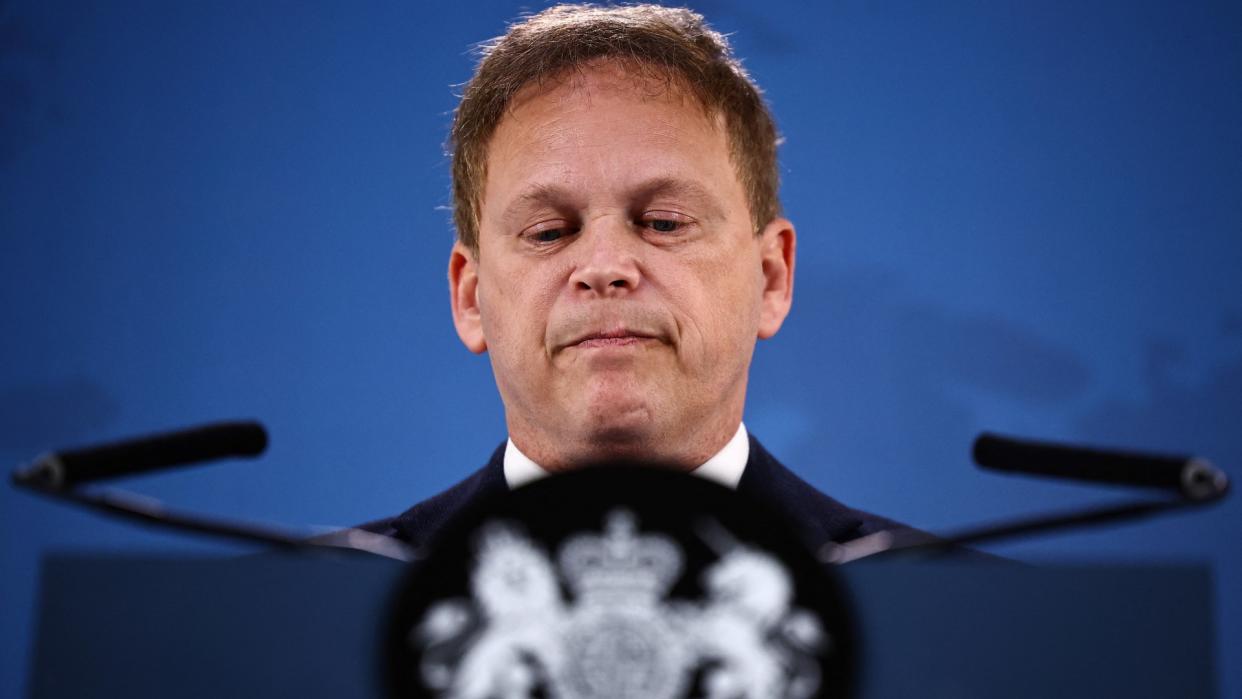Houthi air strikes: why wasn't Parliament consulted?

- Oops!Something went wrong.Please try again later.
- Oops!Something went wrong.Please try again later.
- Oops!Something went wrong.Please try again later.
Rishi Sunak is facing MPs today for the first time since ordering air strikes against Houthi rebels in Yemen.
The prime minister described joint UK and US strikes against 16 sites last week as "limited, necessary and proportionate action in self-defence" to protect global shipping in the Red Sea. It was the first time Sunak has decided to take military action since entering No. 10 over a year ago, "making the statement a significant political milestone for him", said the BBC.
As the US military confirmed one of its fighters had shot down an anti-ship cruise missile fired at one of its warships from a Houthi-controlled area of Yemen on Sunday, a "political row has erupted over the PM's failure to seek approval of Parliament for the strikes – despite briefing the Labour leader ahead of time", reported The Independent.
What the papers said
The PM has been criticised by some on the Labour left, as well as by the Liberal Democrats, the SNP and Plaid Cymru, for not seeking parliamentary approval. The Lib Dems' foreign affairs spokesperson Layla Moran said on X that it was "shameful" for Sunak to bypass MPs, and has "demanded a retrospective vote", reported The Telegraph. Former Labour leader Jeremy Corbyn described the decision not to recall Parliament "utterly disgraceful".
John McDonnell, who served as shadow chancellor under Corbyn, also came out against the government's unilateral action, "There should be no military action without Parliamentary approval", McDonnell said on X. "If we have learnt anything in recent years it's that military intervention in the Middle East always has dangerous & often unforeseen consequences. There is a risk of setting the region alight."
Yet MPs have "no legally established role in approving the deployment of the armed forces", according to a research briefing published on the House of Commons Library site last week, "and the government is under no legal obligation with respect to its conduct in such situations, including keeping Parliament informed".
Despite "intermittent discussion of constitutional reform" over the past two decades, said The New Statesman, the right to deploy UK armed forces remains part of the "royal prerogative", "a power that the prime minister derives through the Crown rather than through parliament".
In practice, however, "successive governments have consulted and informed the House of Commons about the decision to use force and the progress of military campaigns, although there has been little consistency in how that has been achieved", the Commons research briefing added.
Since the Iraq War, it has been "convention" to hold a vote on military action, said Sky News, but even this is "open to interpretation".
MPs voted down air strikes against pro-government forces in Syria in 2013, in what was seen as a "turning debate on parliamentary approval", Sky News said. They voted in favour of strikes against Islamic State in Iraq in 2014 and in Syria in 2015, but the then prime minister David Cameron decided against introducing new legislation on war powers. Theresa May then authorised UK military strikes against Syrian government targets in 2018 without prior parliamentary approval and without a subsequent vote.
Defence Secretary Grant Shapps told the BBC there was "quite a lot of consultation with Parliament, with the speaker, with the leader of the opposition and others", but that a full debate and vote in the Commons "would have provided perhaps too much information and detail to the Houthis".
The government's position is being backed by Labour leader Keir Starmer, who has argued the PM must have the ability to act.
Starmer rejected claims he has watered down one of his 2020 leadership campaign pledges, telling Laura Kuenssberg that his vow for military action to need support of the Commons only meant big boots-on-the-ground campaigns, rather than targeted air strikes like in the Red Sea. He could, though, "face more questions today", said Politico's London Playbook, with McDonnell's intervention a "preview of likely Labour divisions", said The New Statesman.
What next?
Shapps said the government will "look again" at further strikes against Houthi rebels if attacks on vessels in the Red Sea do not stop. And he confirmed the deployment of 20,000 military personnel across eastern Europe, in what The Times called "Britain's biggest land mobilisation to Nato in 40 years".
It comes after Foreign Secretary David Cameron said it was "hard to think of a time when there has been so much danger and insecurity and instability in the world". Concerns are "intensifying about the risks of wider escalation" after the latest attacks by the West on Houthi sites, said The Guardian.
Sunak is scheduled to give a Commons statement this afternoon, in which he will address the Yemeni air strikes as well as his trip to Ukraine last week in which he committed £2.5 billion in extra military aid this year.
"Buckle up," said Politico, after Defence Minister James Cartlidge told Times Radio that the statement would be "very lengthy and detailed".

